I do fear the reaper.
I DO!
Monday, July 30, 2007
Yet another clip from the apocalypse ... Stephen King / Blue Oyster Cult edition
Thursday, July 26, 2007
Whaaaaaaaa .... (rub eyes) .... Whaaaaaaa?

It seems I've been nominated for an Anthony Award. I would like to humbly thank the people involved in making this happen. I'm overwhelmed and grateful. Truly.
Having already lost an Edgar Award, I'm acutely aware that I have some strong STRONG competition in this category ... so I'm going to start practicing my gracious loser face in the mirror.
But ... well ... damn! Very cool, people. Very cool. I'm moved and grateful.
(Yes, I know the pictured award is not an Anthony Award ... but I spent a lot of time recently watching the British Open, so ...)
Wednesday, July 25, 2007
Yet more clips of the apocalypse ... surf's up edition
I'm telling you ... an aqualung and a helmet and you can make it through this one.
Monday, July 23, 2007
Crime fiction has been Barry Barry good to Sean Doolittle
A number of worthy folks have been nominated for a Barry Award, but I have to give a special shout-out to my homey Sean Doolittle whose novel The Cleanup is one of the nominees. This novel is a great read, and I hope Sean will get the trophy ... or plaque ... or certificate. (I've never won an award, so I don't know.)
Good luck, Sean.
Monday, July 16, 2007
It's a Western! (sort of)
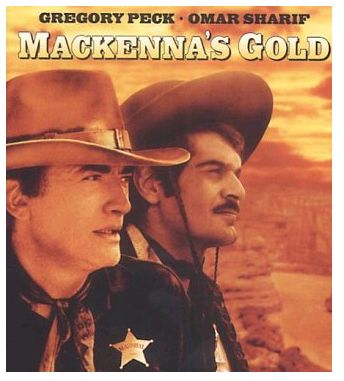
A funny thing happened on the way to bed last night. I flipped the channel to Turner Classic Movies and caught the opening strains of a Glenn Yarbrough-ish theme song and a tedious, intrusive voice-over. The opening footage was of a vast Western panorama a la John Ford in vivid Technicolor. A buzzard hovered in the air. What the hell was this? I checked the electro-guide and found out Mackenna's Gold (1969) had just started. I said to myself, "Self, give this flick 10 minutes and see what happens." Once I'd started, there was no stopping. Because the film is a perfectly conceived work of art?
No. Not even close.
Because the film was too odd and surprising to turn off?
That's closer.
Briefly: Mackenna's Gold is about a law man who gets a treasure map from a dead Indian. Other people find out about it, and the movie continues as a clusterfuck of various folks all wanting a share of the treasure. Imagine It's a Mad Mad Mad Mad World set in the old west, but a lot more people are killed.
The film begins deceptively in what seems to be a traditional western, Gregory Peck on horseback, the landscape littered with orange buttes. The film quickly goes Coo-Coo for Cocoa Puffs. At times the film seems to want to be a traditional western, at other times a bad Sergio Leone knockoff. At one point, I would not have been surprised to see Ray Harryhausen dinosaurs rush from the canyons to gobble the characters. Near the end, we rapidly go from Indiana Jones to Irwin Allen. The style of the film seems to suffer from an identity crisis as if the movie were cobbled together from bits and pieces of other movies.
Yet there was something highly compelling about such a hodge-podge. I almost want to pick up Will Henry's novel on which the film was based. Almost.
And I must grudgingly admire director's J. Lee Thompson's seemingly drunken devil-may-care, it's my movie and I'll do whatever the hell I want attitude. Much of the film is shot against breathtaking scenery, but then other scenes are clearly set on a half-assed sound stage. I was particularly amused by the film's willingness to bring in very well-known actors, give them two or three lines, and then shoot them dead five minutes later.
"Hello, I'm Edward G, Robinson."
BANG.
"I'm Anthony Quayle. I'm British."
BANG.
"I'm Lee J. Cobb. You might remember me from 12 Angry Men."
BANG.
"Burgess Meredith here. I just wanted to express my thanks for being included in the film and--"
BANG.
There are some genuine highlights. We get several shots of Julie Newmar's butt during the underwater cat fight scene, apparently choreographed by whomever did all those Tarzan/crocodile fights. Gregory Peck turns in his usual dependable performance, and Omar Sharif's very un-David Lean-ish performance is quite good.
The special effects. Huh.
Here's how I imagine the meeting:
Director: (gulping from a bottle of rum) I want a big ghost Indian head floating over the canyon at the end of the film.
Special effects guy: Well, we'll have to cut the budget someplace else.
Director: Any suggestions?
Special effects guy: The rope bridge scene. For the long shots I'll use a plastic palomino figurine I got from my Little Farmer's Playshcool Set. The whole thing will run you about three bucks.
Director: (Gulping more rum) Super. Now lets talk about how to do a cheap earthquake.
etc.
Ultimately, this is a film with a lot of problems and many chunks and elements that fit together so strangely and awkwardly that one must simultaneously condemn it as a stinker yet admit that it's highly entertaining nonsense. I cannot bring myself to say it's a good film, but I have to admit I'm glad I saw it. It was, overall, a worthwhile and entertaining experience. Frankly, I don't want to bee too tough on the picture because part of me knows that if I had some horses and cameras and a case of whiskey, this might very well be the sort of film I'd make too. In fairness, many of the above problems might have been solved if Hollywood mofos hadn't demanded an hour be carved from the picture.
If you get a chance, see this film. No, wait. Down 4-5 beers, THEN see this film. Perfect for a Mystery Science Theater 3000 party.
Saturday, July 14, 2007
Hey, maybe'll I'll put this on a book jacket
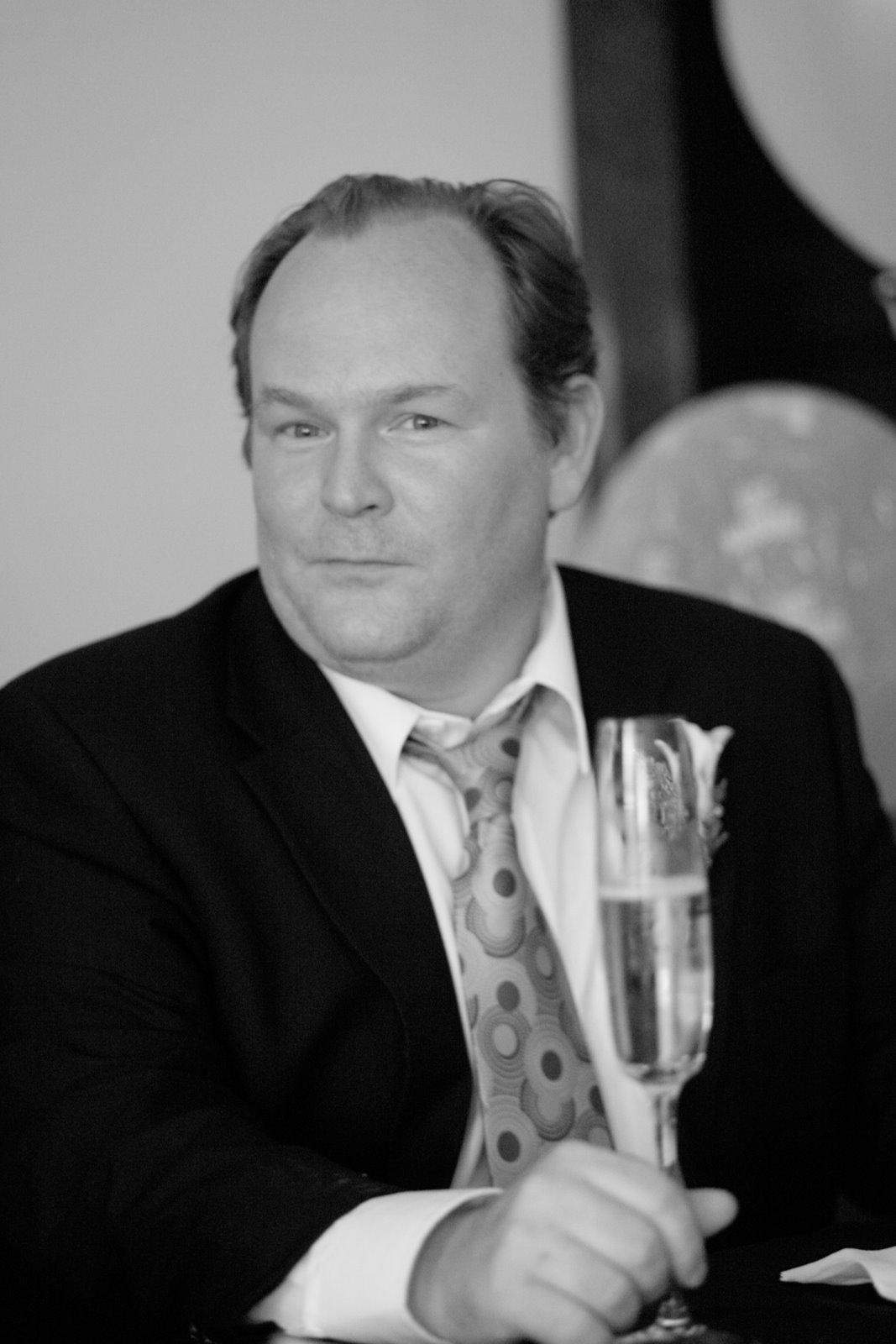
After a long day of being best man at Anthony Neil Smith's wedding, a fellow deserves a glass of cold champagne. The expression on my face seems to hint, "I know something you don't know." Trust me. I don't
If I didn't mention it before, the shindig was enjoyable and groovy, and I was honored to be part of it.
Congrats again to Neil and Brandy.
Friday, July 13, 2007
Fear not, citizens. My magic is strong.
I was paging thru my copy of the Necronomicon last night, and I read where ABBA music wards off Friday the 13th bad luck.
Glad I could help.
Thursday, July 12, 2007
Multi-tasking and big budget car wrecks

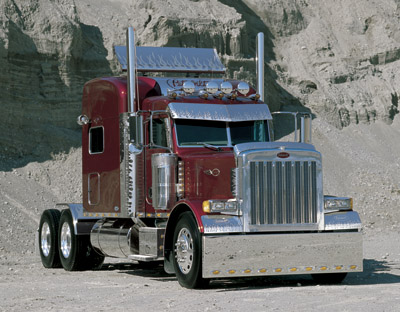

I used to really need to work on one thing at a time. Give something my full attention, get it right, and then move on when finished. These days I find myself juggling multiple projects. Now my little brain swims with screenplays, short-stories, and even more than one novel at a time. So while I'm eager to continue work on Bad Alchemy (vampires, alchemists, grad students ... see previous blog posts) I'm also at work on a crime novel in which the above motor vehicles will crash into various edifices, each other, etc.
I can't help it. I like breaking things.
Wednesday, July 11, 2007
There's a Humongous Among us!
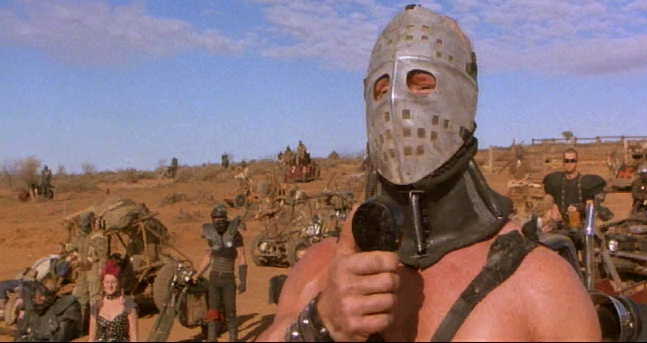
Ladies and Gentlemen, I offer you the Blogpocalypse post-apocalypse film and/or novel survey. I want to know everyone's favorite and or "important" post-apocalypse novel or film. I asked some pals to offer some suggestions to get us started, but I don't think the list is complete by any means ... so join in, you mofos.
My picks: I was tempted to say Alas, Babylon by Pat Frank since it seems to be one of the grand-daddies of nuclear holocaust novels, but instead I'm going to pick Lucifer's Hammer by Niven and Pournell. The authors do one hell of a job of not only depicting the disaster itself (a comet putting the smackdown on Mother Earth) but also of depicting the aftermath. Cool stuff.
Here's what others have offered:
David Brin's "The Postman" is a favorite of mine.(Ignore the Kevin Costner film, although it's not as bad as you might have heard.) A book about hope and the search for meaning in life, "The Postman" might be a little too corny for some, but it worked for me.
David J. Montgomery
*
Ha, great idea. I should probably say something cool like Escape from New York or The Stand, but the post-apocalypse film I think everyone should pay attention to is the direct to video Left Behind: The Movie.Who wouldn't love Kirk Cameron as a cheesy pilot turned missionary after all of the "good christians" have been whisked away in the Rapture? The book are horrible and leaden and preachy, and so is the movie, but it has a level of cheese that elevates it to high art.
Bryon Quertermous
*
A couple of years ago a woman who'd never read any SF got interested, for some reason, in post-apocalypse novels. She asked me if I could give her the names of a few. The ones that came to mind were of course the ones that had most affected me when I was a beginning SF reader long ago. She'd heard of all those but one: George R. Stewart's Earth Abides. After she read it, I got an e-mail from her thanking me profusely for the recommendation. She couldn't believe she'd never heard of such a wonderful novel. Probably not too many people have, these days. It was written in the late '40s, Stewart didn't write any other SF novels (but lots of other stuff), and it's not spectacular in the Mad Max way. It's very quiet. Very powerful, too, and still as relevant now as it ever was. Jim Sallis wrote a great column about it in the Boston Globe. I'd put it at the top of my list, along with A Canticle for Leibowitz and On the Beach.
Bill Crider
*
I suck at this. But two come to mind. The hoopla over The Day After, that made for TV movie in the 80's detailing what happens in the aftermath of a nuclear holocaust. I saw it as an adult and cried buckets, because at one time it *did* seem we were headed toward total annihilation. Plus, we live in the largest concentration of nuclear missile silos in the world, and B-1's were stationed at Ellsworth Airforce Base and we were #4 on the hit list for nuclear attack.
The other one is more urban. JD Robb writes futuristic, the "In Death" series set in 2054. There are heli-cars, penal colonies out in space, other planets which are mini-cities. It's set mostly in NY after the "urban wars." What I love about it, besides Eve Dallas being a kick-ass, totally righteous cop (and it is a romance series, so the relationship stuff with her husband Roarke is killer too) is that it shows the more things change, the more they stay the same. The reasons for greed don't evolve. Since she's 24 books into the series, the character arcs are amazing.
Lori Armstrong
*
I have to say The Road Warrior because, well, it's the motherfucking Road Warrior. I realize that hardly makes me look like Cool Apocalypse Guy (TM), since it's sort of the obvious choice. But I don't care. That movie had all the elements of perfection: a razor-edged boomerang, human bonfires, Alpo as gourmet grub, a character listed in the credits as "Feral Kid," a compound guarded by warrior women wielding flamethrowers, creepy rapist torture-bikers, a villain called The Humongous, and an anti-hero riding the last of the V-8 Interceptors straight to hell. All back in the days when Mel Gibson seemed like a pretty cool guy. How could you lose?
Marcus Sakey
*
Leigh Brackett's The Long Tomorrow (1955) is an out-of-print and overlooked post-apocalyptic novel. It takes place a couple of generations after "The Destruction." Technology is outlawed, as are any towns larger than (if I remember correctly) a few thousand people. Everyone lives in fear. The book was a reflection of its time, but it still holds up well. Brackett was one of my favorite of the classic SF writers. She worked on the screenplays for The Big Sleep, Rio Bravo and The Empire Strikes Back.
Patrick Shawn Bagley
*
At the risk of causing Ray Banks instant heart failure: CHILDREN OF MEN (2006), a movie which I watched last week. Adapted from the novel by P D James, which I haven't read. The movie is a work of art. The premise is fairly straightforward: it's 2027 and women have stopped having babies. There are some nice little surprises along the way, but essentially this movie's so damn good largely due to the brilliant directing and excellent script, which together with one or two standout performances generate some really powerful emotions. The bastarding thing'll make the most hardboiled of individuals weep. I tell you, if Michael Caine's performance as Jasper isn't utterly heartbreaking, it's stone you've got there, mate. Fuckin' stone. There's an astonishing chase scene where the camera wanders all over the place inside the car whilst all around is mayhem. You're right there with the passengers. Terrified. Bleedin' genius, innit. But there's so much else to commend it. Go on, go watch it and if you don't like it you can pull my finger. As Jasper would say.
Allan Guthrie
*
Blogpocalypse pal Duane Swierczynski offers this: http://www.apple.com/trailers/paramount/11808/
*
What, like THE ROAD?
I choose McCarthy's THE ROAD... unless, you know, I'm misunderstanding the question. In which case, my answer is... THE RESTAURANT AT THE END OF THE UNIVERSE.
Or maybe that should be my first answer?
What the hell is wrong with me, Gischler?
Oh, and as far as a film... nothing comes close to A BOY AND HIS DOG.
When I was working for Don Johnson, I never asked him about VICE, or Jennifer Connelly's breasts... I was always asking about A BOY AND HIS DOG.
Maybe that's why Don and I don't work together anymore...
Paul Guyot
*
The Rift by Walter J. Williams. A massive earthquake along the Mississippi destroys the U.S. heartland. The social commentary gets to be a bit much, but the story is pretty cool.
Jeff Shelby
*
Okay. people ... let's hear it .....Monday, July 9, 2007
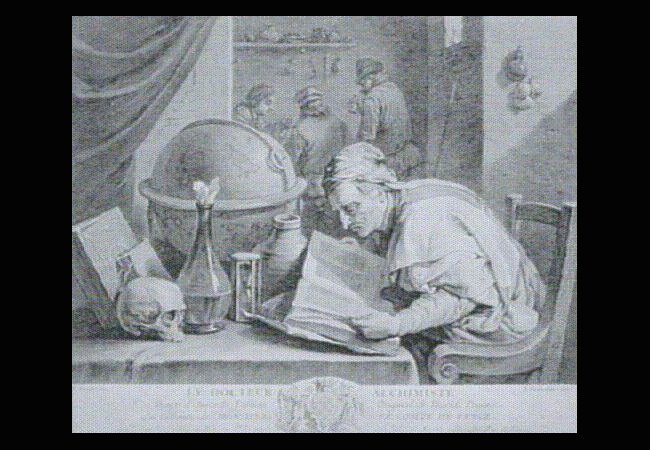
Received news recently via bionic cyborg agent David Hale Smith that Touchstone/Fireside has green-lighted the next novel in my two book contract. It's a charming love-story featuring werewolves and a dead alchemist based on an actual historic figure. Or is it a warm-hearted coming of age story? I always forget. The title Ghosts of the Golden Lane has been crapped into the toilet by all involved, and the new working title is Bad Alchemy. Time will tell.
The process of getting this green light involved writing a synopsis. I HATE summarizing. Hate hate hate it. For one thing, I'm not good at it. I even cringe reading my own synopsis. Perhaps one of the reasons I hate to write them is that while I can summarize a basic plot, I find it very hard to summarize things like style, voice, dialogue, etc. Publishers have every right to know what is coming next, but I will continue to despise the synopsis process. Maybe if I were better at it, things would be more peachy-keen.
Much of the novel is set in Prague. Look up Holy Roman Emperor Rudolph II to get a hint of things and whatnot.
The process of getting this green light involved writing a synopsis. I HATE summarizing. Hate hate hate it. For one thing, I'm not good at it. I even cringe reading my own synopsis. Perhaps one of the reasons I hate to write them is that while I can summarize a basic plot, I find it very hard to summarize things like style, voice, dialogue, etc. Publishers have every right to know what is coming next, but I will continue to despise the synopsis process. Maybe if I were better at it, things would be more peachy-keen.
Much of the novel is set in Prague. Look up Holy Roman Emperor Rudolph II to get a hint of things and whatnot.
Thursday, July 5, 2007
Subscribe to:
Posts (Atom)